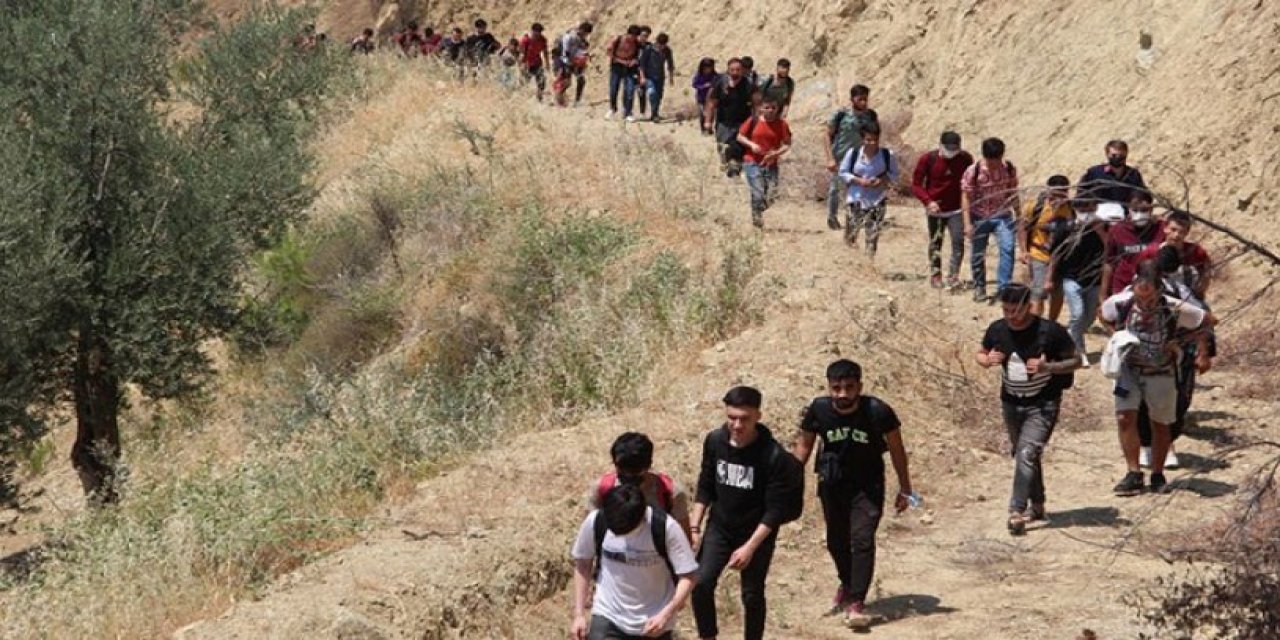When 16-year-old Omer got a tattoo last year of a crown on his right hand, the Taliban – which considers tattoos un-Islamic – detained him for 18 days, beating him regularly. Now, every time Omer looks down, he is reminded of the life he crossed borders to leave behind.
Omer is one of the tens of thousands of people reportedly leaving Afghanistan every week following the US announcement in May that it would withdraw troops and wind down its nearly 20-year military presence in the country. America’s NATO allies followed suit, and the pullout of Western troops from the country is almost complete.
Somewhere between 500 and 2,000 Afghan refugees are now estimated to be entering Turkey every day after undertaking the long and arduous journey from Afghanistan. The numbers are still lower than those recorded during a previous uptick in Afghans entering Turkey in 2018 and 2019, judging by apprehension statistics from the Turkish government, but they are expected to rise further.
A Taliban offensive following the US announcement has led to surging violence in Afghanistan. The militant group has made rapid territorial gains. Its fighters have encircled most provincial capitals, bringing clashes to the edges of urban centres like Kandahar and Lashkargah in the south, and to Herat in the west. Civilian casualty rates increased by 47 percent in the first six months of this year, and an estimated 270,000 Afghans were newly displaced. Nearly half of the deaths and injuries occurred in May and June, when the US and NATO withdrawal accelerated.
US President Joe Biden has authorised emergency funding to meet “unexpected urgent refugee and migration needs” stemming from the situation in Afghanistan, and the United States is expanding its refugee admissions criteria for Afghans who supported the US war effort.
For the vast majority, however, opportunities to seek safety outside the country through legal pathways simply don’t exist, and it’s unclear where new Afghan refugees will be able to find safe haven: Afghanistan’s neighbours are wary of taking more people in, and European countries have expended considerable effort – and money – on constricting irregular routes to the continent since the 2015 migration crisis.
Pakistan and Iran already host close to 90 percent of the nearly 2.5 million registered Afghan refugees who have escaped the country during four decades of conflict, as well as hundreds of thousands more who are unregistered. Both countries have pushed hundreds of thousands of people to return to Afghanistan in recent years, and Pakistan has said it will not accept any more Afghan refugees.
Meanwhile, the ripple effects of the brewing refugee crisis have already reached Turkey’s eastern border with Iran, where The New Humanitarian met Omer.
When Nerkh – the district where Omer lived, in Wardak province near Kabul – fell to the Taliban in May, Omer decided it was time to leave. “It’s not safe at home, and the Taliban want to control us,” he told The New Humanitarian on 9 July in Tatvan, two days after he entered the country. “I want freedom,” he added.
‘If the country was peaceful, no one would leave’
Like Omer, many of the Afghans The New Humanitarian spoke to who had entered Turkey recently were young men who struggled to see a future in Afghanistan amidst the intensifying conflict and potential return of Taliban rule. But there were also elderly people, people with medical conditions unable to get the care they needed at home, and families hoping to find a place where their children could get an education.
The countryside in eastern Turkey is dotted with villages of small, stone houses and rocky hillsides where shepherds tend their flocks. To reach here from Afghanistan, asylum seekers have to cross Iran, covering more than 1,500 kilometres by car, van, bus – sometimes on horseback. Those with less money cover the majority of the distance on foot, taking up to six weeks to complete the journey. Smugglers charge between $600 and $4,000 – half upfront and the remainder on arrival – depending on the method of travel.
“It took us 29 days to get here,” said Omer. “We walked 12 hours a day, usually with no food. We felt so bad. Iranian border police took our things, even our clothes, and burned them in front of us. They beat us very hard and hurt our heads – if we had known they would beat us so hard, we would not have come,” he said, adding that his cousin had fallen and hurt his back while crossing the mountainous border between Iran and Turkey.
Many of the people The New Humanitarian spoke to said they arrived in Turkey injured, drained, and in poor health after crossing difficult terrain in hot summer weather. Some said they were attacked by gangs of thieves, and even wolves, crossing Iran, and many struggled with the sheer, rugged peaks and steep canyons of the Zagros mountain range, which fringes the border.
Making it into Turkey can take many attempts, they said, with up to 500 people moving at the same time and only around a quarter completing the journey during any given try.
“If the country was peaceful, no one would leave,” 26-year-old Murtaza from Kabul, who was travelling with his relative, Shahidullah, told The New Humanitarian. “This journey is horrible and boring and tiring.”
To read the full article: https://www.thenewhumanitarian.org/news-feature/2021/8/4/the-afghan-refugee-crisis-brewing-on-turkeys-eastern-border
